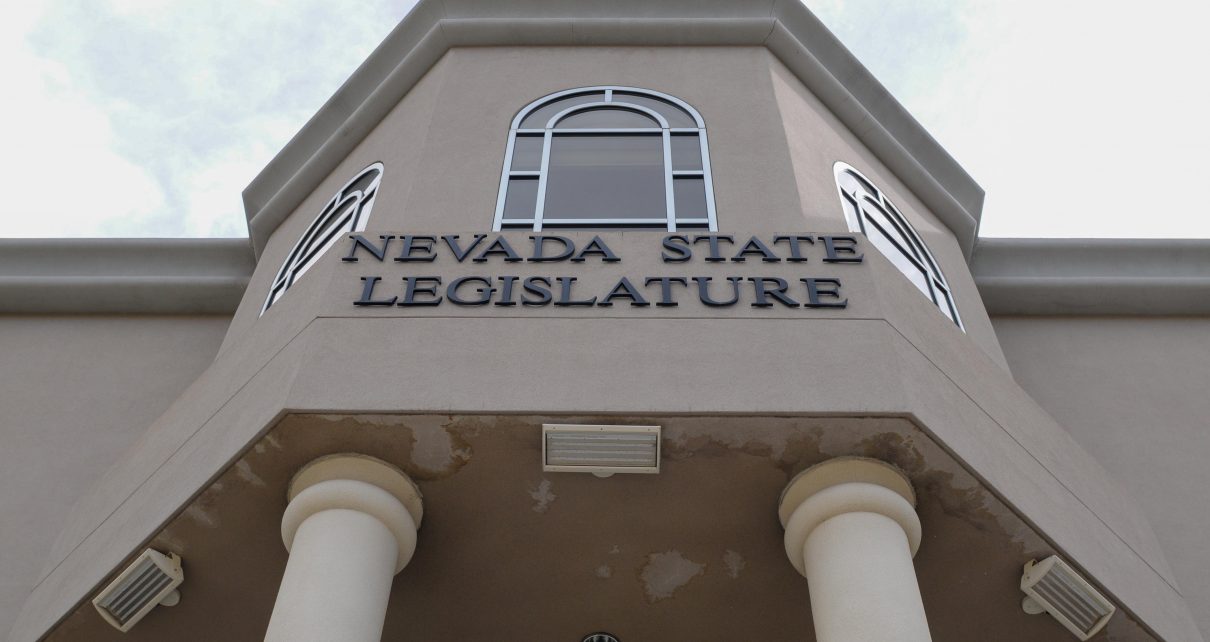
Bipartisan Bill Removes Autonomy of Cannabis Compliance Board
SB328 removes exemption of CCB from Administrative Procedure Act
By Kiera Sears, May 9, 2023 2:17 pm
“The Administrative Procedure Act (APA) is the statutory constitution of administrative government. It sets out the default rules that govern how federal agencies act, how they can be challenged, and embodies important administrative law norms, such as procedural regularity and reasoned decision-making. It stipulates the ways in which federal agencies may make and enforce regulations.
As heard by the Senate on April 12, 2023, SB328 seeks to remove the Cannabis Compliance Board (CCB) from the list of agencies currently exempted from the provisions of the Nevada Administrative Procedure Act (NRS 233B). As it stands today, the CCB enjoys complete autonomy in the adoption, amendment, and repeal of its regulations, and its remedies arguably congruent with abrogated judicial review.
During the early years of Nevada’s medical and adult-use cannabis program, participants were initially overseen by the Division of Public and Behavioral Health, and then later by the Department of Taxation. Each of these agencies are subject to the APA, and thus, its cannabis participants enjoyed its procedural protections – that is, until the Legislative Session of 2019. With the creation of the CCB came its exemption from the APA, and following the repeal of all prior cannabis statutes, the wheels were set in motion for the CCB to govern completely without constraint.
Enacted in 1965, the Nevada APA was adopted under the same pretense as its Federal predecessor twenty years prior – to govern the process by which federal agencies develop and issue their regulations, establish minimum procedural requirements for the regulation-making and adjudication procedure of all Executive agencies, and provide for the judicial review of their functions. This is where we derive our laws regarding open meetings, which include our right to notice, hearing, and public comment.
Administrative agencies include any agency, bureau, board, commission, department, division, officer, or employee of the Executive Department of the State Government who is authorized by law to make regulations or to determine contested cases. Although administrative agencies seem quite commonplace for us today, their existence is relatively new.
Most certainly not contemplated by our forefathers, the use of agency by administrative agencies has given many a cause for concern.
“Agencies are extensions of the executive branch of government that have the ability to make, interpret, and enforce rules and regulations. Because they are unelected and arguably combine executive, legislative, and judicial functions, agencies have been criticized as undermining the separation of powers between the three branches of government.”
While the APA was initially adopted for application to all administrative agencies, Nevada has increasingly classified more and more agencies as exempt from its provisions. Its current list of exempted agencies includes: the Governor, Department of Corrections, Nevada System of Higher Education, Office of the Military, Nevada Gaming Control Board, Nevada Gaming Commission, Division of Welfare and Supportive Services, Division of Health Care Financing and Policy, Office of the State Engineer, Division of Industrial Relations, Administrator of the Division of Industrial Relations, Board to Review Claims, Silver State, Health Insurance Exchange, and last but not least, the CCB. The State Board of Parole Commissioners is also exempt, though only with respect to contested cases.
In May 2021, the Nevada Lawyer Magazine discussed the implications of this unique phenomenon:
“Where the roles of rule-maker, investigator, prosecutor, and decision-maker are consolidated for purposes of convenience or efficiency, great caution must be taken to protect the rights of the hundreds of thousands of people whose lives and livelihoods are affected daily by agency determinations and decisions. Both the federal and Nevada Administrative Procedure Act are safeguards against the accumulation of unchecked power in an administrative agency. As the modern administrative state often blurs the lines of the separation of power by delegating functions to one agency that are typically reserved to each of the three branches, the rights afforded in an established and uniform system of due process are even more essential.”
Today, cannabis companies are reaching out to the Legislature for reprieve; many feel that via its classified exemption, the CCB has been able to rule with an iron fist.
As it currently stands, under NRS 678A.510, if the Executive Director of the CCB has reason to suspect a violation of law, it will transmit details directly to the Attorney General (AG), who will then conduct an investigation as to whether the matter warrants proceedings for disciplinary action. If a positive determination is made, the AG will report the results of the investigation, together with a recommendation, back to the Executive Director, who will then transmit the recommendation to the Board. The Board must then decide to either dismiss the complaint or proceed with disciplinary action, which would be brought as a hearing before the Board. If any entity or individual is aggrieved by the final decision, the options for judicial review remain constrained.
If SB 328 is passed by the Assembly and signed into law, it would no longer allow for such an exemption, and would require the CCB to comply with the APA when carrying out disciplinary actions. It would re-engage cannabis program participants’ full opportunity for judicial review, and would further mandate the future adoption, amendment, and/or repeal of regulations be subject once again to the provisions of the APA.
As sponsored by Senators Robin Titus and Rochelle Nguyen, SB 328 passed almost unanimously through the Senate, with only Senator Krasner voting in disapproval.




